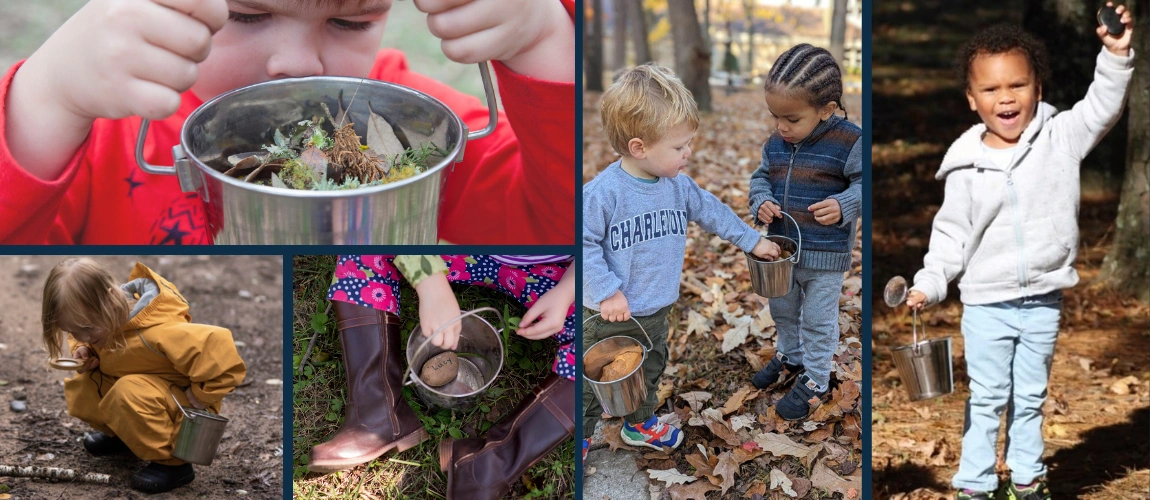Last week was not the first time I saw Mark Zuckerberg and other CEOs called to task in Congress, but it hits different this time. Now, my eldest baby has her first smartphone. If your kids don’t yet have devices, I write this for you, too. If we’ve learned anything over the past decade, it’s never too early to think about how you'll prepare kids for all they’ll experience.
All this thinking has jogged my memory of a very different statement that Mark Zuckerberg made in 2017, not in his role as a CEO, but in his role as a dad (more on that below). And, like Ben Franklin’s key-and-kite moment, it reminded me of why I'll continue to put my efforts in getting kids out to play.
Response to the Testimony
If you missed the coverage, the recent Senate hearings were aimed at addressing the worst of offenses against kids online. Before even thinking about corporate accountability, limitations of platforms or what to do about it all, my immediate response was an overwhelming sense of unthinkable heartache and compassion for each of the families standing in the chamber, as well as the many who could have been in Congress’ session that day, holding photos of their babies who have been lost. My thoughts soon evolved to what I, as a mom of three and educator, could do to ensure the safety of all kids in a moment that feels significantly more challenging than when I was a child.
For sure, it’s critical we must do whatever we can to educate kids about the potential threats and pitfalls that access to powerful technology can present. But we also need to double down on ways to keep kids whole. Perhaps more than our warnings, well-intentioned guidance, and whatever “armor” we can equip them with, we need to fill their inner bucket with as much as we can of all that is good, real and whole. That just might be our best shot at helping kids thrive. The question becomes how.
Zuckerberg’s Testimony: Safety Isn’t Enough
I believe Meta, Snap, and other technology platforms should feel the hefty moral responsibility to build in features to protect kids. Reaping the rewards of opening Pandora’s box should come with the responsibility to manage the fallout, too. But even in a world where technology companies step up to significantly improve the environments they have created, those efforts alone will never be enough to keep our kids safe.
Zuckerberg said it himself:
“As we (Meta) improve defenses in one area, criminals shift their tactics, and we have to come up with new responses.” The bad guys will always try to find new ways to impact users, including our kids.
That’s why I’m deeply proud of my teammates at Highlights and our partners at Google for the development of an “Internet Awesome” edition of Highlights magazine. It includes kid-perfect content that’s not only entertaining but also teaches kids effective strategies to stay safe online. I cheer for all the grown ups working in schools, libraries, community centers and more to help and teach our kids to build the kind of critical-thinking skills and awareness they need to navigate digital spaces.
Even More Than a Safety Plan
Beyond these amorphous “criminals” lurks a greater threat—the technologies themselves. They inflict relentless distraction, emotional toll, loneliness, and even self harm—all of the ways kids are impacted by managing an always-on, public persona in place of direct, human connection. The algorithms never take a day off. In many ways, these are real “bad guys.” So how do we protect our kids from all that?
There is important work we can all do in our homes, in our schools, and in our communities—to provide real life connections and experiences, and to coach our kids on how to play on team human.
What Can We Do?
Get Outside
After a decade of work on Tinkergarten, I’ve seen countless evidence of how life-sustaining it is to spend time outside. I’ve learned that nature need not be a national park. It’s everywhere and anywhere you can find even a bit of earth, sky, and other species. You can even bring the outdoors in.
Invoke Wonder
Spending time in natural settings and interacting with natural materials supports better health, restores our attention, and boosts our mood. It also gives us the chance to marvel at what is both wonderful and real—all that we can touch, see, feel, hear, taste, and trust. It plugs kids into original, enduring ways of knowing and meaning making.
The more kids experience wonder, the more they strengthen their curiosity, experience joy, and even deepen their natural empathy. These human superpowers are precisely what kids will need to fight loneliness, to think critically about the powerful pull of technology, and to recognize the essential difference between the dopamine hit from one more “like” and the lasting boost they get from experiencing true wonder and joy (a recalibration I know I could use more often than I’d like to admit).
Feel Connected
Direct connection to the natural world also teaches us that we’re part of something bigger, and that something bigger is part of us. That includes millions of species to care for—living things who remind us of how interconnected we all are. Trees communicate and share resources, robins chirp warnings to nearby feathered friends—everything ebbs and flows in a gorgeous, communal dance, day after day, season after season, year after year.
The sense of belonging you get from coming to know all of this can buoy kids as they get tossed about by life’s challenges. And, once kids connect to nature, they’ll always have a restorative place to turn when they need to retreat.
Get Together and PLAY
How best to help kids fill their human buckets with this goodness? Get out and play! And to the degree it’s possible, connect with others in your school or local community to do the same. When we share playful time in nature with others, we intertwine our deep roots of belonging to grow even stronger together.
Zuckerberg’s Dad Advice: Go Out and Play
It turns out, even tech CEOs know this, too, once they experience it. In 2017, when Priscilla Chan and Mark Zuckerberg’s second daughter was born, they wrote her this letter. I recall my favorite excerpt:
“But rather than write about growing up, we want to talk about childhood. The world can be a serious place. That's why it's important to make time to go outside and play.
You will be busy when you're older, so I hope you take time to smell all the flowers and put all the leaves you want in your bucket now.“
The Chan-Zuckerbergs likely have no idea how much this letter to August resonated with our Tinkergarten team. Filling kids’ buckets meant everything to us back in 2017, and, after last week’s hearings, it means even more today.
At Tinkergarten, we feel all the more committed to making sure that we can provide parents, caregivers, and teachers access to content, curriculum, and training they need to get the kids they love and teach outside to play. And we will continue to partner with others who seek to do the same. The need to give our kids strong roots and full buckets of goodness has never felt more pressing.
We’re Here to Help
While finding ways to create enriching outdoor moments is essential, it isn’t always easy. Getting outside might be a simple first step, but for a lot of us, knowing how to get started —and how to make moments outside really count— just doesn’t feel natural. That’s the work we do at Tinkergarten.
Check out our free monthly calendar full of timely ways to get out and play. Search in your area for a Tinkergarten teacher who is offering outdoor play classes for kids 2 to 8, and join in. You can also follow along with our curriculum each week at your own pace at home. Or, get curriculum and training to teach outdoor play within a school or learning center, homeschooling, or by starting your own community programs for families and kids.
Other Resources that Can Help
Nature
- Children and Nature Network
- Children and Nature Network Research Library
- Natural Start Alliance and National Association of Environmental Educators
- My Kids Need the Outdoors And I Need Help Giving It to Them, Outside Magazine
- Wildschooling (FB Group)
- OutdoorsAll4 (FB Group)
Play
- The Power of Playful Learning, Edutopia
- More Than One Way To Play, Tinkergarten blog
- Peter Grey: Play Makes Us Human (Substack)
- Timbernook
- Playworks
- US Play Coalition
Internet Safety
- Be Internet Awesome by Google
- Highlights Magazine: Be Internet Awesome edition
- Common Sense Education: Teaching Digital Citizenship
Reads and Listens About Kids
- Plain English Podcast:
- Why Are American Teens So Unhappy? March, 2023
- Why Are American Teenagers So Sad and Anxious? April, 2022
- Growing up Public in a Digital World by Devorah Heitner

